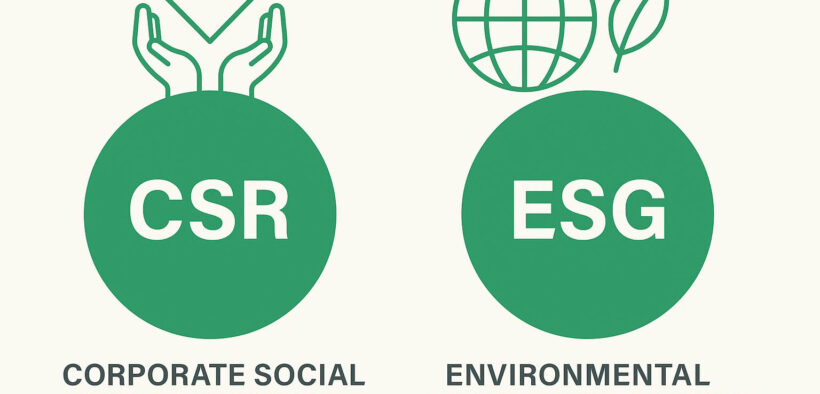Why companies must move from goodwill to accountability

“CSR and ESG are both important for companies trying to act responsibly and sustainably, but people often find it difficult to tell them apart.”
In today’s business landscape, doing good is no longer enough to gain a competitive advantage. Almost every company donates, volunteers or supports a cause — but what truly sets one organization apart from another is its willingness to take a firm, measurable stance on its impact. It’s not just about goodwill anymore; it’s about accountability, transparency and long-term commitment.
That’s where the distinction between Corporate Social Responsibility (CSR) and Environmental, Social and Governance (ESG) becomes critical.
CSR reflects a company’s values and moral commitment — a voluntary effort to give back to society and the environment. It’s about philanthropy, ethics and reputation. CSR initiatives often take the form of community programs, donations or sustainability campaigns that express a company’s heart. Promoting CSR has become a critical part of brand management.
ESG, on the other hand, represents its strategy and discipline. It’s a framework that measures and reports how a company performs across key environmental, social and governance dimensions. ESG translates good intentions into data — metrics that investors, regulators and stakeholders can trust.
The difference lies in approach and accountability. CSR says, “We care.” ESG says, “Here’s how we prove it.”
CSR builds trust with communities. ESG builds trust with investors. And together, they create a full picture of a company’s integrity.
Many organizations begin with CSR as a foundation of goodwill. But in today’s marketplace — where stakeholders demand transparency and measurable impact — companies that evolve toward ESG show they’re serious about their commitments. They move from acts of kindness to acts of accountability.
In an age when stakeholders demand honesty and transparency, companies that embrace both ESG and CSR are the ones most likely to earn lasting trust — and thrive. Together, they define the future of responsible business. But in a world where anyone can “do good,” the companies that will truly stand out are those that take a stand — placing purpose into performance and values into measurable results.
That’s not just responsible business; that’s smart, sustainable leadership.

Author Brenda Reyes-Tomassini is a public relations, community and government affairs consultant.




